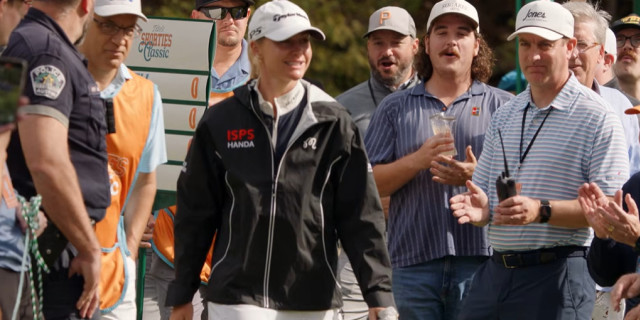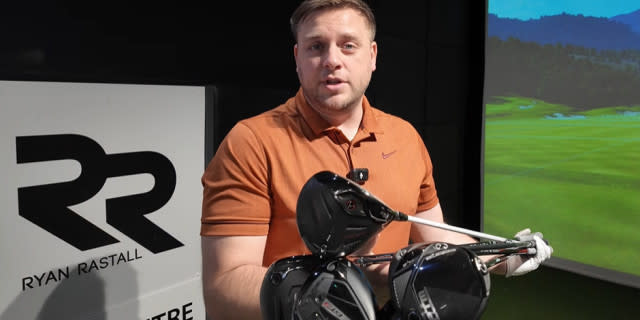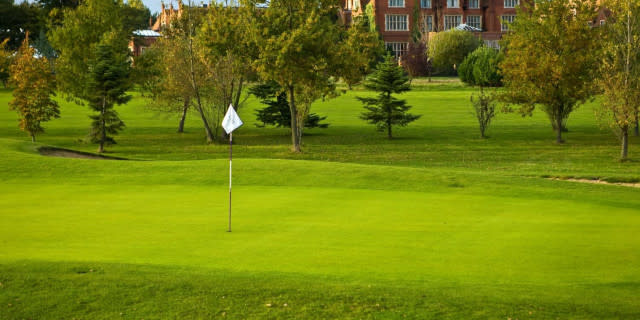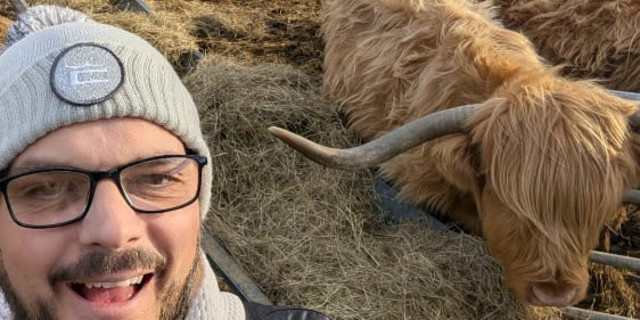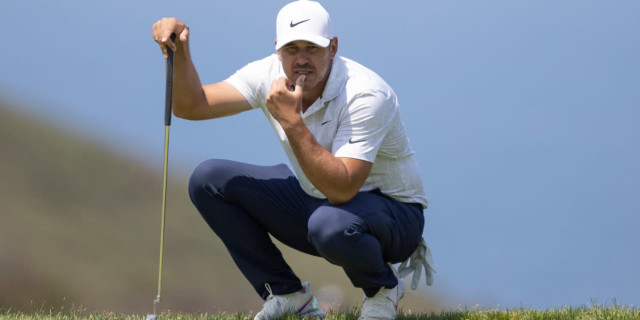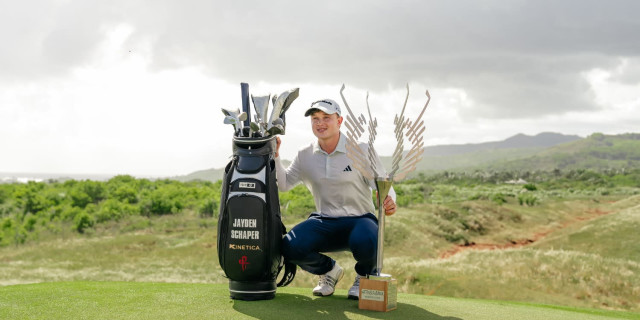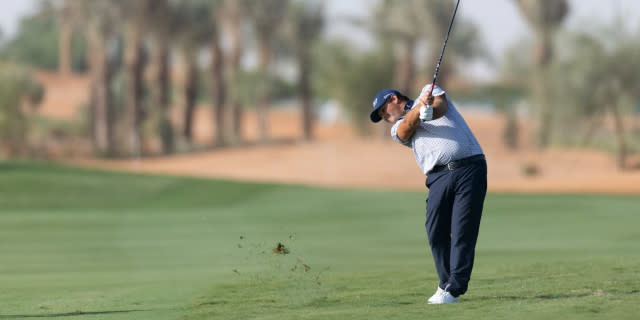
Interview with England Golf's Disability Manager Jamie Blair
All of us would agree that golf is both a challenging and extremely rewarding sport to play. Those two facets go together. It’s impossibly difficult to master, but the experiences derived from that journey are meaningful. The demands are only increased when you step onto the course with an impairment or disability, but this ancient game nonetheless possesses a unique ability to inspire and enthral new players from a variety of challenging backgrounds, and making that opportunity more accessible and known is a key objective of England Golf and its Disability Manager Jamie Blair.
Having been involved within disabled sport for a decade, Jamie has been working tirelessly at England Golf for four years, and has seen vital relationships and networks continue to develop in that time, as more people with impairments are being introduced to golf across the nation, which has continued a recent trend of sports that were less traditionally associated with disabled players having sought to develop that side and enhance inclusion and accessibility.
“There’s a couple of key areas in my role. The club support network. We work closely with the club support officers,” Jamie said during a telephone conversation. “They can be professionals or clubs who have identified that they want to do that work in the community. We’ve just put together a page, and that lists and contains all of our supports guidelines.”
“Those clubs do want to recruit through national partners. British Blind Sport, Cerebral Palsy Sport, for example. Looking at the groups and networks that they have, and how that can be connected to offer golf. So, working with county sport partnerships that we have in England, and then any other networks that we aware of, the most successful of which has been the Stroke Association.
“There is national partner work in terms of the national disability sport organisations. We have a plan with them through each year in terms of where they are going to be running events or opportunities for golf to be dropped in and promoted. We also try and link up into our campaigning, so they put that out into their network like British Blind Sport and the two million people with a form of visual impairment. There is potential scope there, especially with those who have been in sport, or were golfers but have been affected by their condition. We’d look to be more effective with how we communicate through those organisations to bring those people back into golf.”
Messaging and raising awareness is of paramount importance. Knowledge of disabled golf is certainly becoming more widespread, but many golfers and clubs perhaps underappreciate the benefits that the sport could have to them and friends who are facing physical challenges, which is something that England Golf is looking to address through analysis of the game’s demographics.
“We need to understand what disability in our sport looks like. Around one fifth of the population have some kind of disability, and 70% of them are over 50,” Jamie added. “The average age of a club golfer in England is 55, so there’s work we need to do around player retention, and that is a big focus for England Golf and our support officers working with clubs. What are we doing for those people whose impairment is becoming a barrier and devaluing their golf experience. “
Engaging with people is a hugely important educational activity for England Golf, who are launching a Player Survey in 2018 – seeking input from disabled golfers, both club members and non-club members ahead of the inaugural Disability Championship that will be held in 2019. That has been shaped in recent years with The British Amputee & Les Autres Sports Association, and through this enhanced communication and coordination, it will hopefully meet the demands and hopes of the golfers themselves.
“We want to see their opinion and what they would like to see in terms of events, and that will help to inform England Golf but also those other organisations and groups. Offering more multiple-impairment type events. We can’t just make it what we want to do, it has to be driven by what people want.”
The health benefits of playing golf having been widely discussed and showcased, but for disabled people and those with a variety of complex impairments, the game is uniquely placed to deliver a suitable experience for those who may not be able to compete in other sports.
“In para swimming classification becomes quite paramount, but golf has an inbuilt handicap system, so there’s already a level playing field. It’s about the way you play the course and targeting personal bests,” Jamie explained. “We probably don’t make as much of that as we should, but we certainly need to. Variety of formats. There’s a great flexibility with what people can do on their time and with their health. It doesn’t have to be 18 holes. Even people using ranges and TopGolf type facilities, there’s a huge variety in golf for people to take up and be involved in some way, and it’s our responsibility to better connect that.
“When it comes to golf aiding the recovery of stroke survivors, it’s great. They can hit a few balls, sit down, have a cup of coffee with their wives or friends. There’s a whole social aspect that – again – we probably don’t make enough of, which keeps a lot of people in golf.”
However, major strides have been made in recent years when it comes to the uptake from golf clubs, and Jamie has witnessed the progress. “Through GetIntoGolf and the Inclusive Club Finder, we have got around 100 clubs that are listed on there. When I started, there were ten or 15 clubs that were proactive, so that has grown over the four years and there are other clubs who do work that isn’t as recognised. Stuff that’s connected to charities that golf clubs do around disability, but it isn’t always connected to participation.”
Collaborating alongside schools and community groups is another focus that is continuing to be developed, with golf having been cited as a useful activity for youngsters with learning and social difficulties. When it comes to less physically prohibitive disabilities, the game is hugely popular with deaf players, being the fifth biggest sport for those with hearing impairments, underlining the versatility of golf regarding its suitability for those facing a variety of challenges.
“We’re just working with Cerebral Palsy Sport now to create an adapted version of golf that would very similar to table cricket,” Jamie continued. “We’re looking to have a putting match format of the game that would be suitable for more complex conditions like muscular dystrophy. Things that restrict power and movement. Presenting golf in a different form for people and using the power of the game to make a difference.
“There are a lot of people with an attachment to golf. Maybe they have a family member, friends, used to play at work, golf has a big impact in terms of people’s lives. If we can support people to become more physically active and mentally engaged, we trying to provide that.”
Changing image and perception is an ongoing task. Should a golf club desire to challenge themselves and look to engage with groups and associations, integrating events and participation for impaired and disabled golfers, the support network is there to assist. Significant progress has been achieved, but there is still work to be done as golf looks to become more inclusive.
Links and Information
www.englandgolf.org/inclusiveclub - hub of resources for golf facilities to use and access to improve their experience for disabled people.
www.englandgolf.org/disability - information on if you’re disabled or know someone who is on how to get into the game and more importantly, why you should.
www.englandgolf.org/disabilitygolf - list of major fixtures and links to impairment specific golf groups and their competition offerings.
www.getintogolf.org/inclusive - searchable map to find a club offering inclusive activity for disabled people, or you can use the ‘learn to play’ feature to find your local facility offering activity.
About the author

Kieran Clark is the Digital Editor of Golfshake. He oversees editorial content, community engagement, forums, and social media channels. A lifelong golfer from the Isle of Bute in Scotland who has now lived in St Andrews for a decade, he began playing at the age of five and maintains a passion for exploring courses, with a particular affection for historic layouts. Kieran regularly contributes in-depth opinion pieces and features, drawing on his enthusiasm for the game and its culture.
Tags: England Golf Disabled Golf

